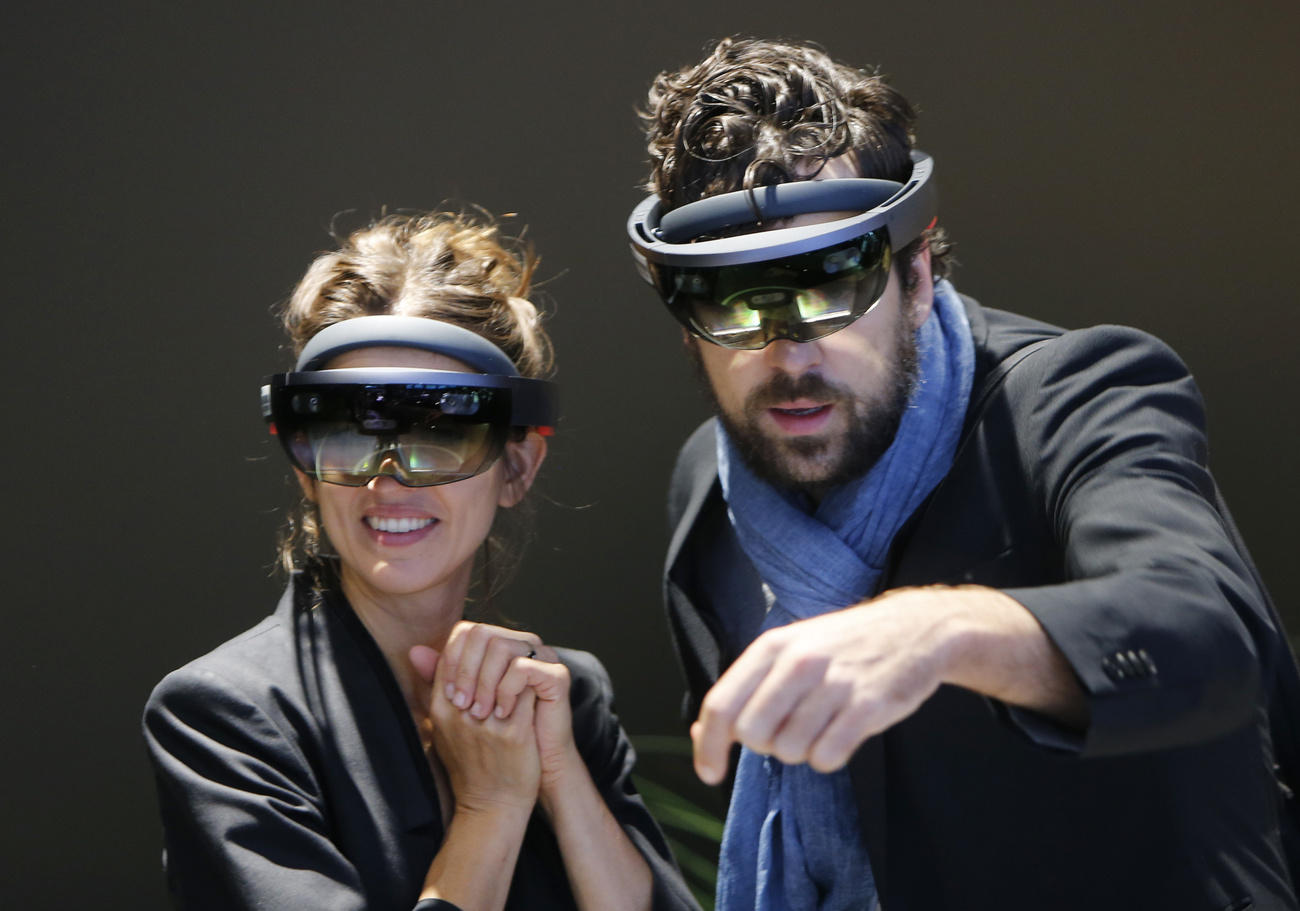
Game on: Scientists make virtual objects feel real

In a breakthrough that improves the richness of virtual reality, researchers at the Swiss Federal Institute of Technology Lausanne (EPFL) have created soft moving parts that can simulate the feeling of touching a virtual object with your fingers.
In the virtual world, objects do not exist: you can pick up a cup or pen, but it does not feel like you’re touching them. Herbert Shea, who heads the Soft Transducers Laboratory at EPFL’s School of Engineering in Neuchâtel, wanted to make these objects feel real.
“We’ve created very small, thin and fast actuators,” he explained. “They are millimetre-sized capsules that use electrostatic energy to inflate and deflate.”
The capsules have an outer insulating membrane made of silicone enclosing an inner pocket filled with oil. Each bubble is surrounded by four electrodes that can close like a zip. When a voltage is applied, the electrodes are pulled together, causing the centre of the capsule to swell like a blister.
The capsules, known as HAXELs, can move not only up and down but also side to side and around in a circle.
“When they are placed under your fingers, it feels as though you are touching a range of different objects,” Shea said. The research has been published in the scientific journal Advanced Material.
Video games
Shea’s team is already working on integrating a dozen of these capsules into a thin glove.
“The capsules will be combined with another system that actively blocks your fingers from going through the virtual object,” he said.
“You’ll convincingly feel you’re holding a solid object even though your hands are empty. We’ll also be able to recreate the feeling of different materials: you’ll be able to tell whether the object you’re holding is made of wood, plastic or ceramic. This will be fun for video games but also useful for surgical simulators and teleoperation.”
For the technology to be used, the researchers now need to create the software that will program the feeling and weight of the virtual objects held in the glove.

More
Zurich mixed reality researchers designing post-smartphone future

In compliance with the JTI standards
More: SWI swissinfo.ch certified by the Journalism Trust Initiative
















![The four-metre-long painting "Sonntag der Bergbauern" [Sunday of the Mountain Farmers, 1923-24/26] had to be removed by a crane from the German Chancellery in Berlin for the exhibition in Bern.](https://www.swissinfo.ch/content/wp-content/uploads/sites/13/2025/12/01_Pressebild_KirchnerxKirchner.jpg?ver=bb19e376)














You can find an overview of ongoing debates with our journalists here . Please join us!
If you want to start a conversation about a topic raised in this article or want to report factual errors, email us at english@swissinfo.ch.